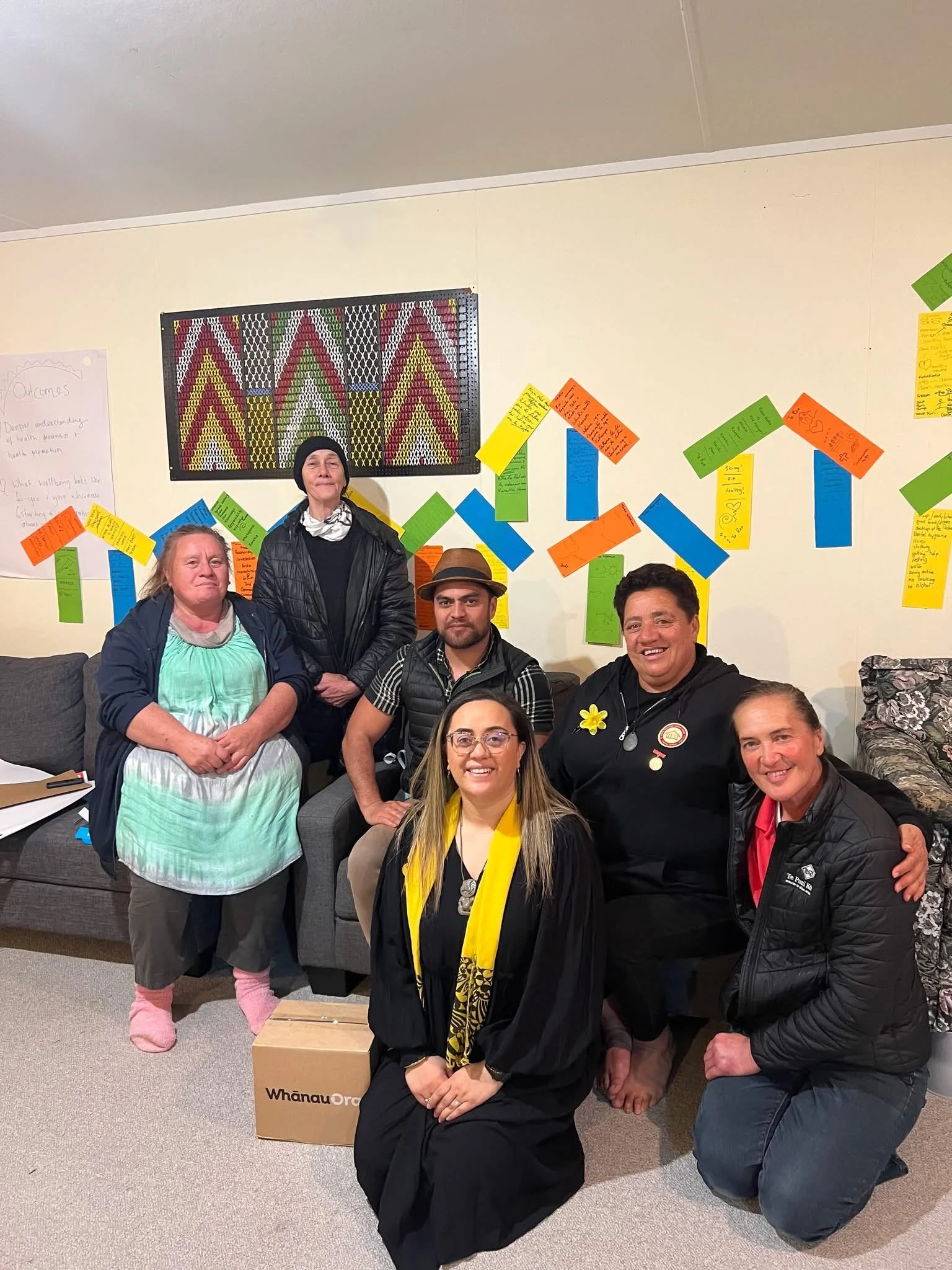Kaupapa Wellbeing: Strengthening Hauora in Te Tairāwhiti
In the lead up to Mental Health Awareness Week, Healthy Families East Cape celebrates Kaupapa Wellbeing. This is a wāhine-led movement co-created with Ngā Wāhine Māori Toko i Te Ora Te Tairāwhiti, Māori Women’s Welfare League Te Tairāwhiti. The kaupapa is rooted in mātauranga Māori, the strengths of our wāhine, and reimagines pathways to collective hauora across our rohe.
From the beginning the wāhine shared aspirations for thriving whānau and resilient hapori. The kaupapa was guided by Te Whare Tapa Whā and maramataka, where they strengthened each taha of wellbeing in ways that drew on mātauranga Māori, creativity, and connection.
Connection through whanaungatanga and being involved was something our wāhine valued most. Having their experiences as women, as kuia, as mothers and as nannies valued, and ensuring we continue to have opportunities to be involved in decision-making of our lives, of our environments and of our community was spoken of highly when it came to maintaining mental wellbeing. Whānau desire systems and services that are mana enhancing through each stage of the process.
The Kaupapa Wellbeing journey has seen the development of resources to strengthen each taha, which included Te Whare Tapa Whā activity cards, maramataka reflective journal, strategies to support good sleep habits, and affirmation cards inspired by maramataka. These tools enabled the wāhine to nurture their own wellbeing and share this knowledge with whānau, hapū, and iwi.
The data and lived experience show the strength of this collective approach. There were over 100 wāhine who participated in Kaupapa Wellbeing, 6 workshops were held over twelve months, and 4 drop-in workshops which created spaces for ongoing learning and connection.
Across all wānanga the wāhine identified the importance of kotahitanga in light of the isolation they faced during the Covid-19 pandemic restrictions. Opportunities to haka together and learn new waiata to fill their kete in preparation for hui and kaupapa were seen as essential.
Laughter and fun with whānau and friends was spoken of fondly, with the knowledge that this aspect of life is important for our hinengaro and mental wellbeing. Being confident enabled our wāhine to stay positive and optimistic about life, especially in the face of challenges.
“"I like to have a katakata with my friends and my whānau. In fact, my whānau drive me nuts but I love them and know how important they are and their presence is for my hinengaro. They keep me sane”, said one wahine.
Another said that “staying positive about things, even when its hard. Its hard to be resilient, but that’s about all we have sometimes here on the coast.”
Kaupapa Wellbeing represents a system shift by centering wāhine, embedding Māori frameworks into wellbeing practice, and strengthening relational approaches across Te Tairāwhiti. This was shown at the Māori Women’s Welfare League National Conference held in Rotorua. Branches from across Aotearoa and Australia demonstrated how this kaupapa has the potential to influence change nationally. Through Māori Women's Welfare League’s networks and advocacy, wāhine are shaping healthier futures for generations to come.
Kaupapa Wellbeing shows that transformational change is achieved by amplifying strengths already within our communities, uplifting wāhine and grounding solutions in mātauranga Māori. We are strengthening all taha of Te Whare Tapa Whā especially te taha hinengaro in ways that benefit not only individuals but whānau, hapū, iwi, and future generations.
Mental Health Awareness Week is a reminder that collective wellbeing depends on the wellbeing of each individual. Kaupapa Wellbeing reflects this principle by supporting wāhine to strengthen their own taha hinengaro and overall hauora, which then supports their whānau, hapū, and iwi.
“Ko Hine-ahu-one te orokohanga, ko Hine-te-iwaiwa te poipoi, ko Hine-nui-te-pō te okioki, ko te tapu o te wahine te tauhere o te ao, ki te pō.”

